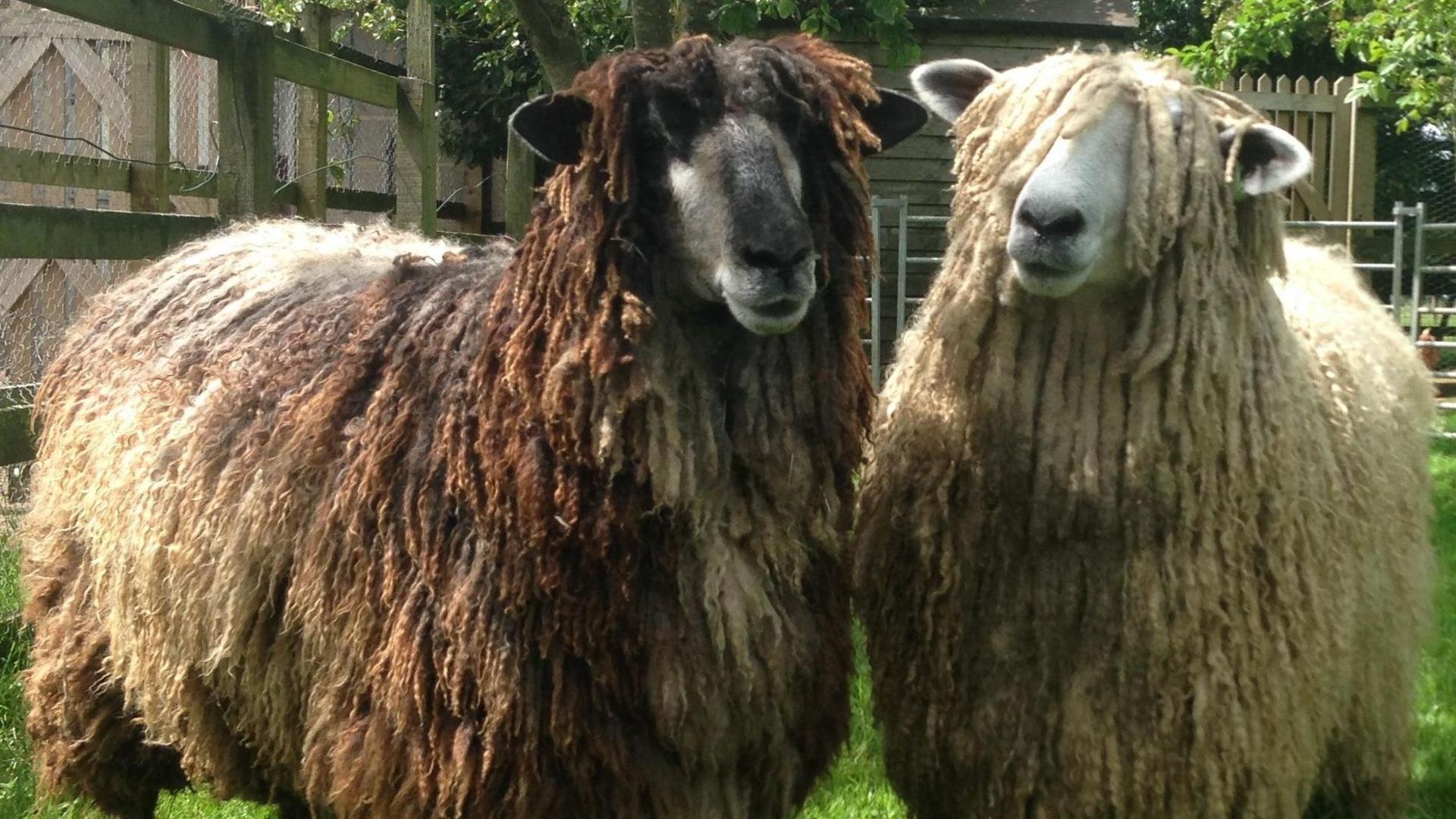Farmer urges consumers to pick high-quality fibres
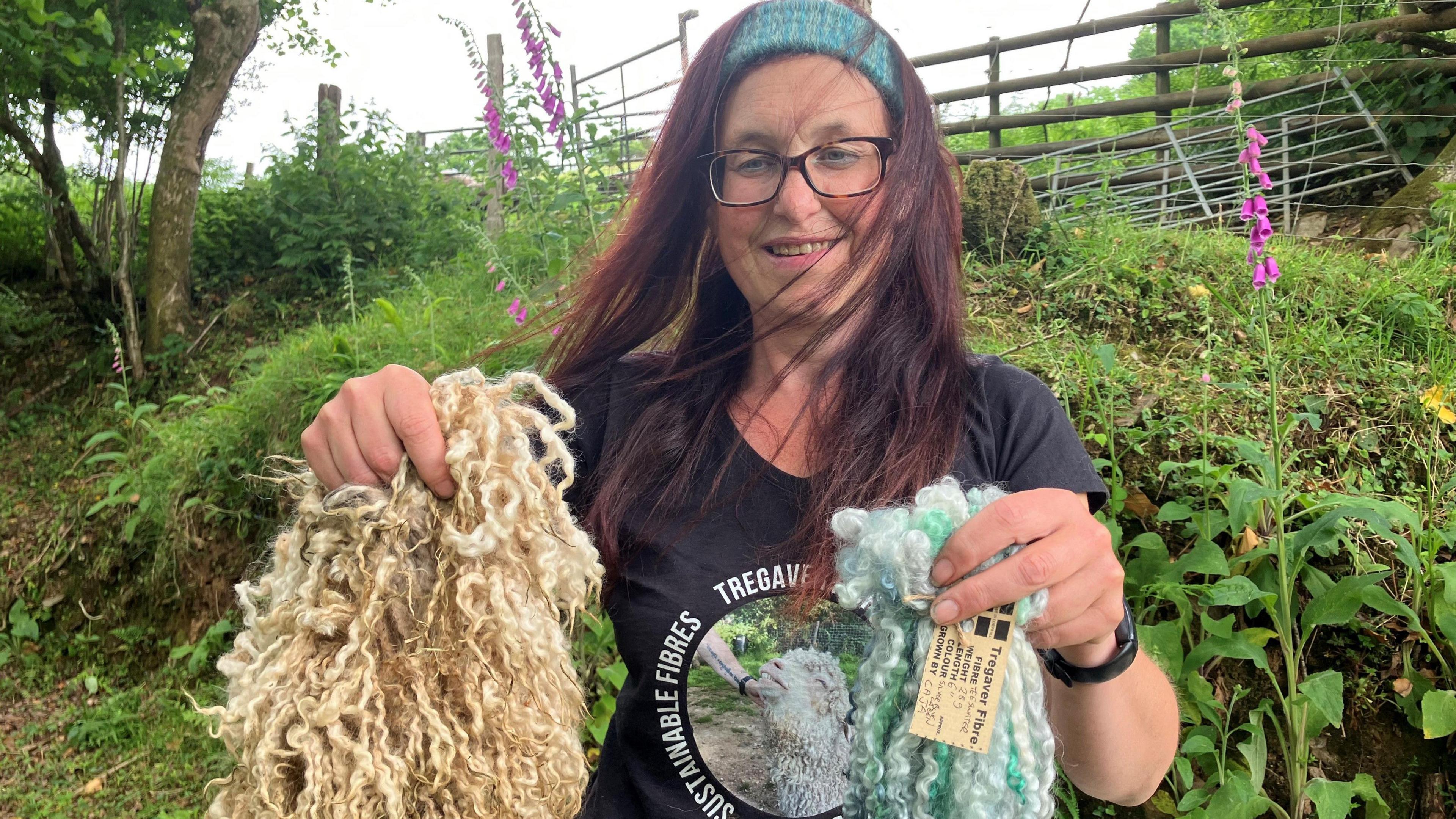
Caz Rimmer, comparing the shorn wool with the product she has dyed herself, is urging others to choose high-quality fibres
- Published
For Caz Rimmer, from Cornwall, using natural wool is a way to cut down on plastic.
"A lot of cheap yarn is just acrylic," she said. "It sheds in the washing machine, it sheds when you are walking around, so you're literally putting microplastics into the environment."
The rare breed sheep farmer is one producer trying to tap into what some in the industry have said is a resurgence in consumers seeking out eco-friendly and renewable materials.
Bosses at the Natural Fibre Company, a woollen mill in Launceston, said they did business with more than 100 rare breed sheep farmers, as well as commercial flocks, to create a product mixing bobbin waste with natural wool fibres.
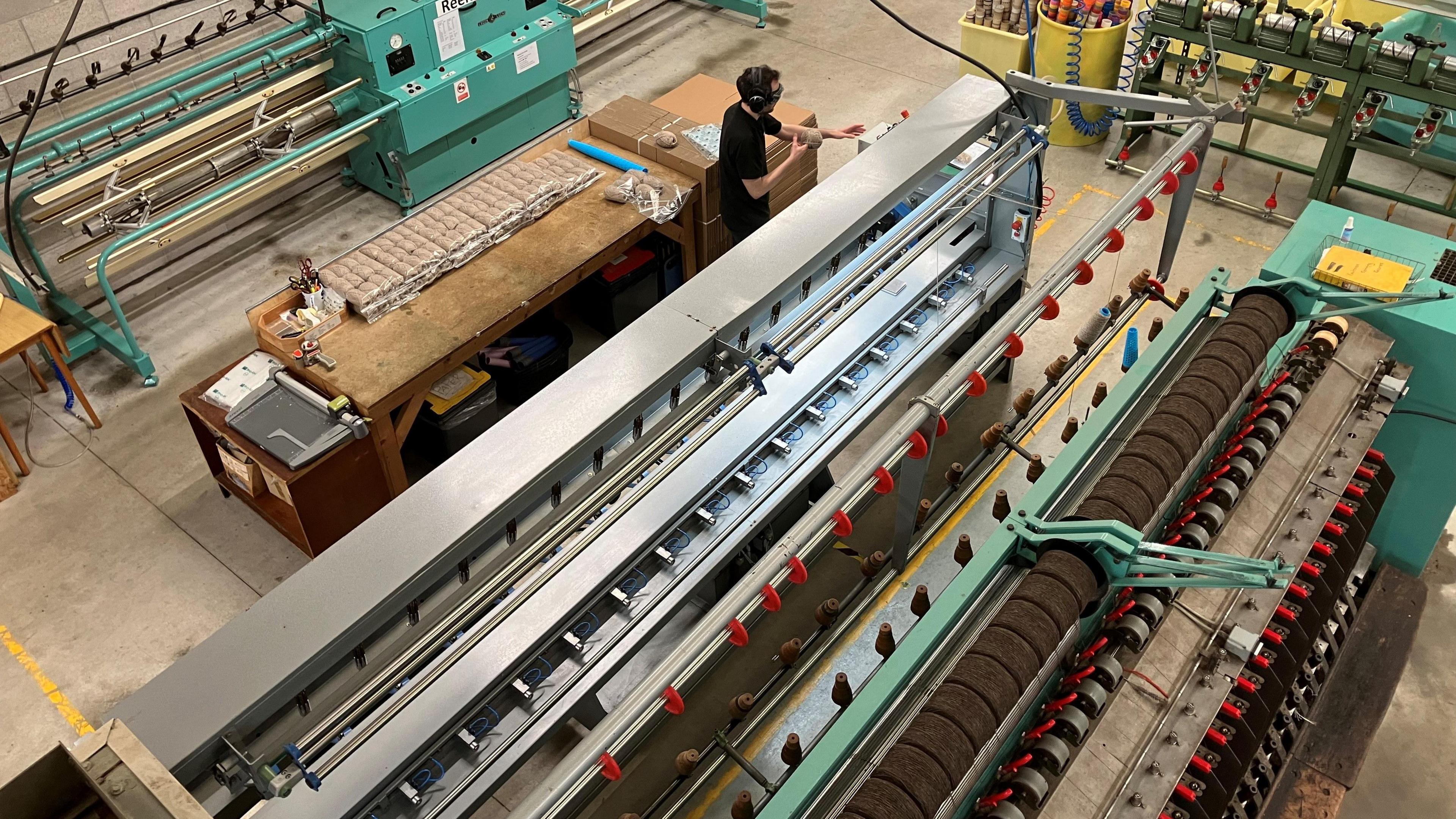
The Launceston mill uses huge specialist equipment
Ms Rimmer, who has Wensleydale and Teeswater sheep, hand processes and dyes all her own fibre but uses the Launceston mill to spin her carded fibres and yarn.
Doll makers tend to use Wensleydale and Teeswater wool for their hair and it is also used for felting.
"I wanted to do something with wool that was different," she said.
"There's a lot of people knitting and crocheting... but not everybody can knit and crochet."

Wensleydale and Teeswater sheep wool is often sought after for doll's hair
Ms Rimmer said the mill was "like having a sweet shop on the corner".
"The key ethos of my business is nature and sustainability and sending wool up to Scotland is just madness when I've literally got one of the best mills in the country on my doorstep," she said.
"I've got a big kick against plastic it was really important to me that any yarns that I had spun didn't have any acrylic in it.
"So all of our yarns are 100% natural fibre, which means you don't get the microplastic shedding.
"So it was a case of it needs to be 100% natural and biodegradable, and working with the mill they can achieve anything if you ask."
Specialising in small batches, the mill blended Ms Rimmer's white fibre with bobbin waste that is a result of the processing of another farmer's wool.
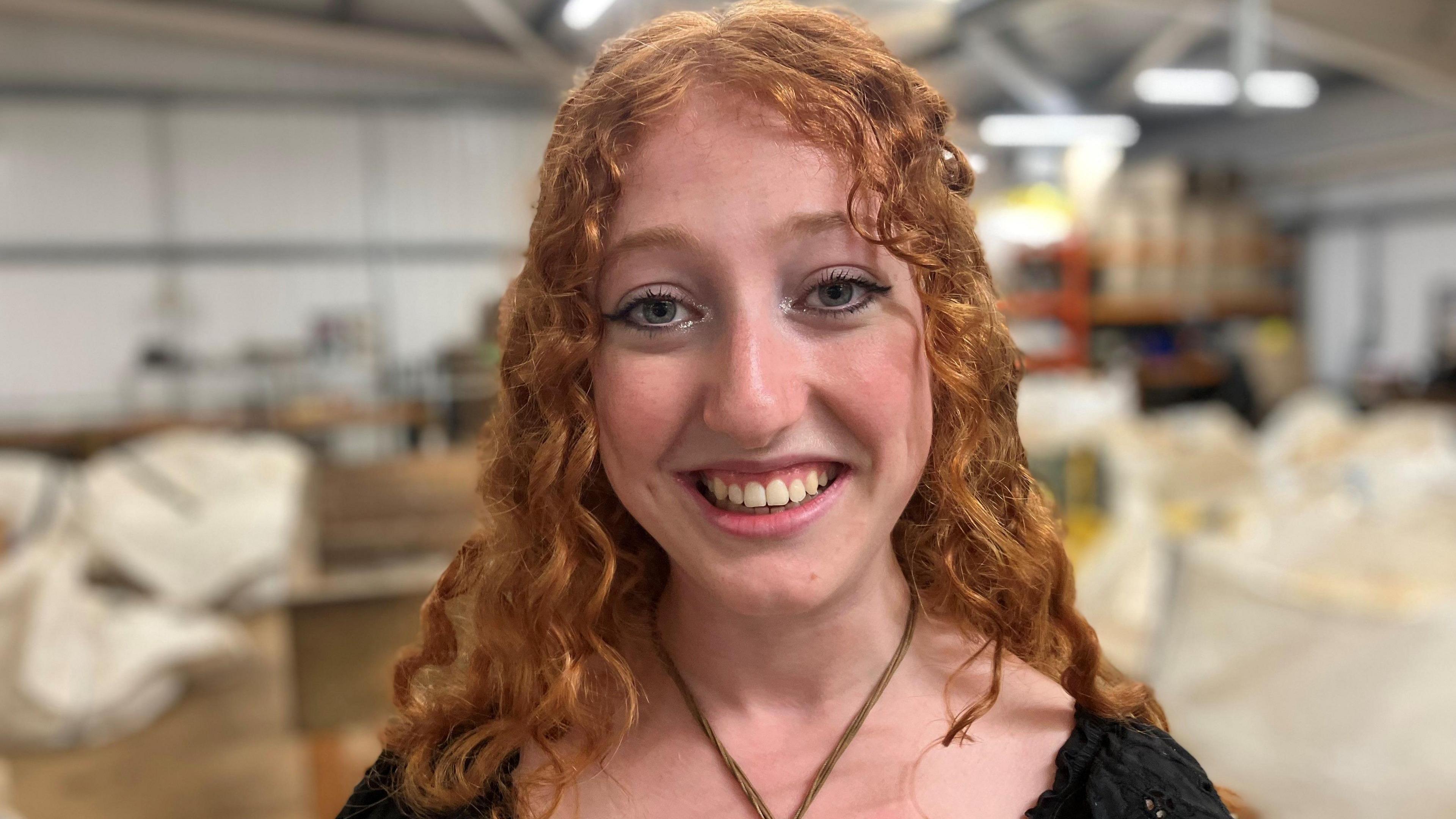
"People are moving away from synthetic fibres," said Katie Waller
Katie Waller, a Falmouth University graduate who now works at the mill as an apprentice knitwear designer, said the process was "amazing".
"I came to visit here on the national manufacturing day and I fell in love with the whole processing because it is so cool," she said.
"I get to experiment with so many different wools and different blends which I otherwise wouldn't be able to.
"I either knit samples for customers who want to see what they can do with their yarn and I also design and knit things and make hand knitting patterns that people can purchase.
"People are moving away from synthetic fibres and polyester and choosing natural fibres and adding to your fleece is what we can do here."
Follow BBC Cornwall on X, external, Facebook, external and Instagram, external. Send your story ideas to spotlight@bbc.co.uk, external.
Related topics
- Published19 June 2024
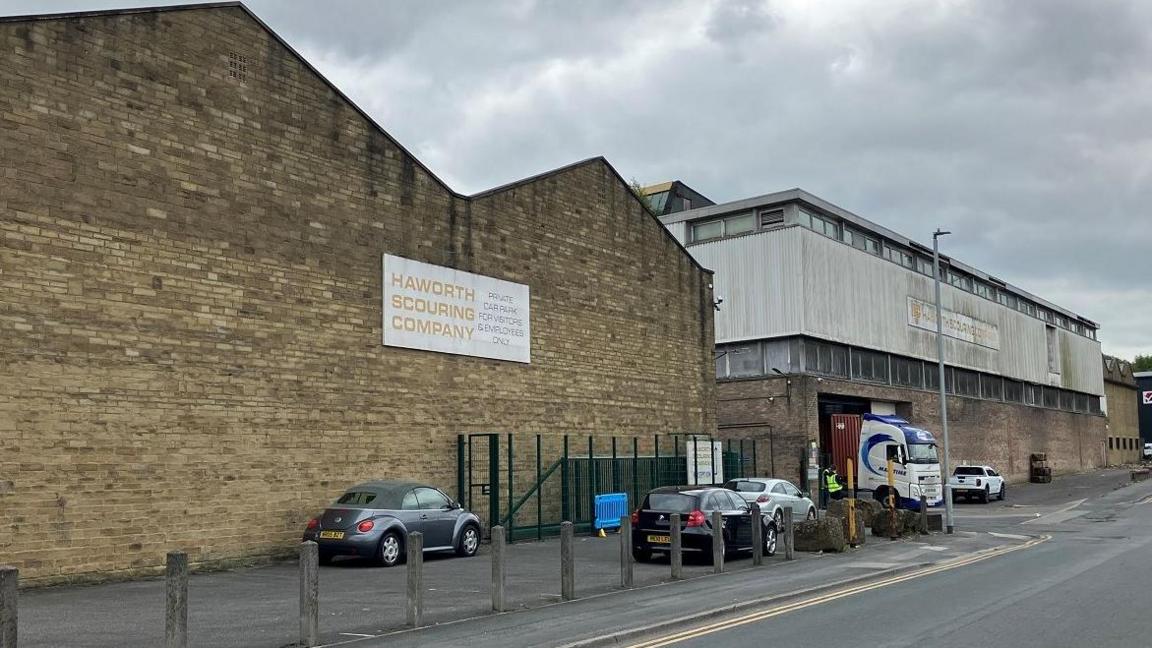
- Published14 November 2024
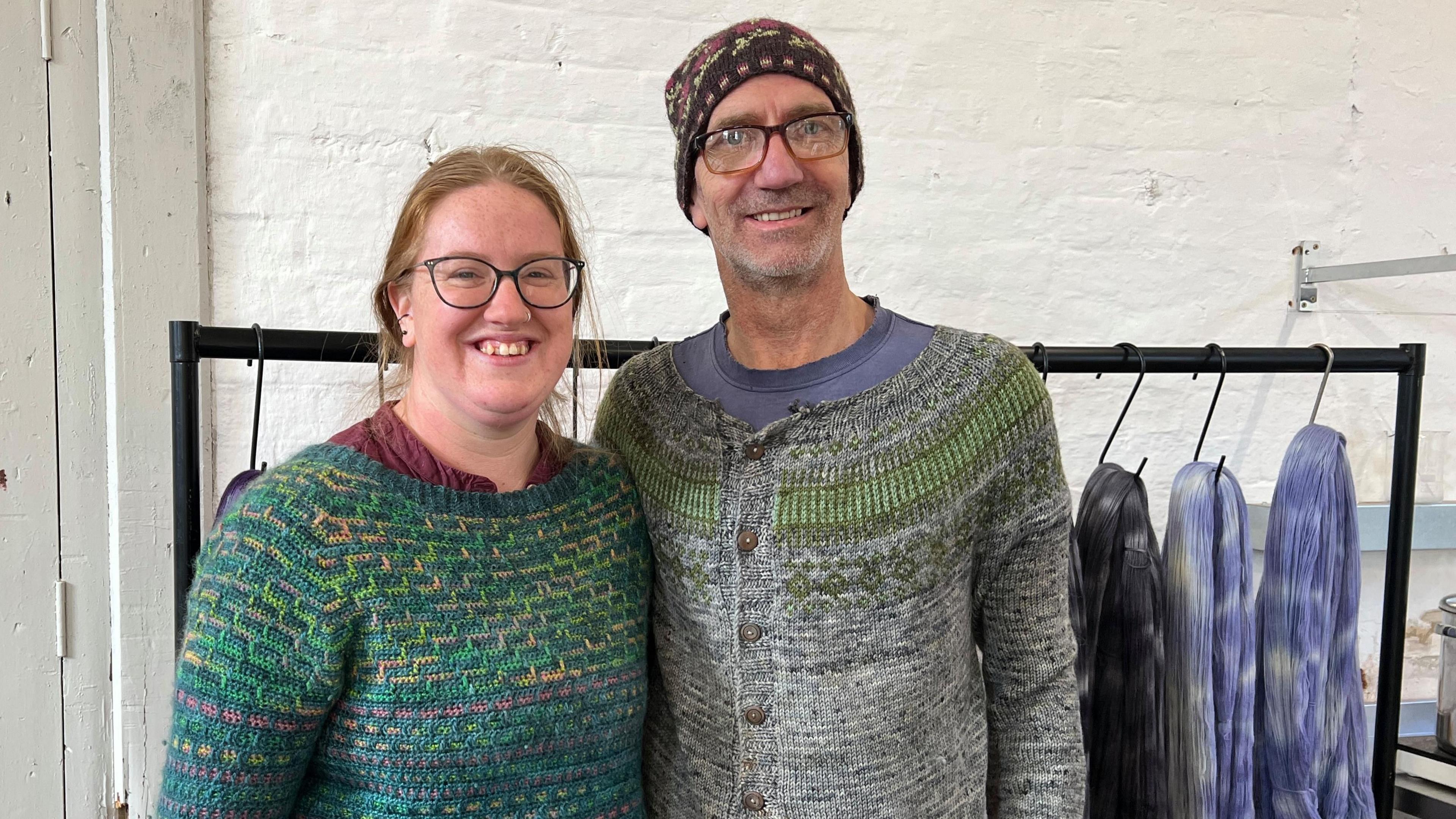
- Published28 April
